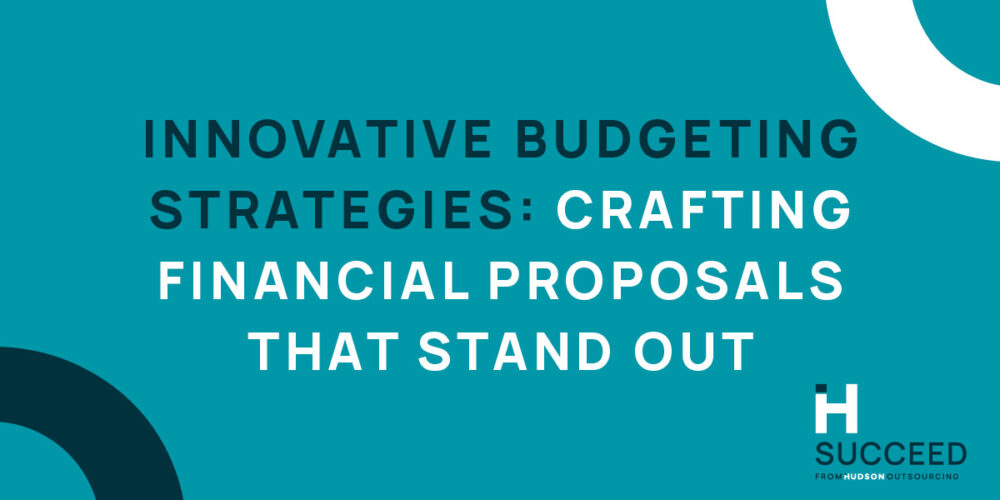Here’s 7 tender writing tips from professional Bid Writers!
Looking for free tender writing tips? Have you ever wanted to sit down with a bid writing professional and see what it takes to win? Well, at Hudson Succeed, our experts are more than happy to offer support. In this blog, we will cover seven of the most important tender writing tips. Keep reading to see how you can increase your chances of success!
1. Use writing and communication to your advantage
Here’s our first tip: make sure you have a great grasp on writing and communication skills. You can use these to your advantage when writing a tender. As you may have guessed, writing skills are important for writing tenders. This isn’t just about spelling and grammar, although these are incredibly important. Writing a good tender means using writing skills to communicate with the buyer. You should clearly express your skills, experience, concepts, and more, in the best way. Your tone should be persuasive. Afterall, you are trying to convince them that you are the best option for the contract.
Essentially, you want to use writing and communication to make yourself memorable. That doesn’t mean you should go to any extremes, as you should remain professional. But executing these abilities and showcasing them in the best light will give you an edge over competitors.
2. Don’t use technical jargon
Following on from our first point, next on our list of tender writing tips is to not use technical jargon. Since your bid should be clear and easy to read, adding technical jargon will work against this. There is a very high chance the buyer has little to no knowledge of your industry. So, using words they won’t understand will instantly make it a chore to read your bid. They’ll be confused and may have to research what something means (if they have the time, which is unlikely).
Ultimately, if your bid becomes difficult to read, you’ll leave the buyer with a bad impression. In turn, they will likely avoid awarding you the contract as they won’t fully understand your tender.
3. Proofread your work before submission
Even the best writers will make mistakes in their first draft, no matter how small they are. Our next tender writing tip is the importance of proofreading and editing your bid proposal. You should never submit a first draft when tendering! There’s almost certainly going to be mistakes, even minor ones you might not notice at first. The issue is that the buyer likely will notice them, as it is their first time reading the document. Plus, they are reviewing it thoroughly.
Our Bid Writing Consultants suggest that you thoroughly proofread your bid several times. It can be beneficial to take breaks and then read it, as you are more likely to notice errors. You should also read it aloud, or have your device read it aloud to you. This makes it easier to notice anything that doesn’t sound quite right. If you have the team members, you could ask other people to read it too. The more it is proofed, the higher the quality. If you submit a bid full of errors and mistakes, the buyer won’t take you seriously. They will get the impression that you are lazy and unprofessional. So, they certainly won’t want to award you the contract.
4. Read all the documents before you start
One of our most important tender writing tips is to read all the buyer’s tender documents before you start. This way, you can prepare your bid and make sure you cover all the important details. The last thing you want is to complete an excellent bid, only to find you missed an important part. This will result in your bid being a complete waste of time and effort.
5. Use bid management skills to stay on track
One of the best ways of staying organised is through bid management. Here are a few things to consider for effective bid management:
- How long will each individual question take?
- Do you need to create case studies for responses?
- What do you need to attach for each question?
- Where is the response to be submitted and with what deadlines?
- How is the work to be submitted? Some buyers require physical submissions as well as online.
- What format do they require your responses in?
- Who will be responsible for developing responses?
The more prepared you are, the less likely you are to have made mistakes. If mistakes happen, you’ll also be prepared to deal with them efficiently and effectively. This ensures time isn’t wasted and the bid is submitted on time and of the highest standard.
6. Ensure you use relevant case studies
Next on our list of tender writing tips is the importance of case studies. These should be showcased in your bid proposal as it is evidence of your skills and experience. The buyer wants to feel assured they can trust you with their contract. So, you need to make it as easy as possible for them to put their faith in your abilities.
It is also important that your case studies are relevant to the bid you are going for. Irrelevant case studies do more harm than good. This is because it shows you don’t have relevant experience, firstly. Then, it shows you haven’t bothered to check whether it’s relevant.
It is an added bonus to be able to include testimonials for the case studies you showcase. We wrote a blog for more tender writing tips for case studies.
7. Be compliant with the instructions
For the last of our tender writing tips, we will discuss the importance of compliance. You may be surprised to know that there are those that don’t follow the buyer’s instructions. This massively impacts your chances of success. Why would the buyer award you the contract if you can’t follow instructions for the bid?
When the buyer gives a specific word count for your answer, stick to it. For example, if they want 1000 words, get as close to that as possible. If your answer is only 500 words, it shows two distinct issues. One is that you can’t follow instructions. Secondly, is that you don’t know enough about your business to answer the question fully. Both are detrimental to your chances of success.
Summary
So, now that we have come to an end on our blog of tender writing tips, let’s recap!
Here are the seven tender writing tips we explored:
- Use writing and communication to your advantage
- Don’t use technical jargon
- Proofread your work before submission
- Read all the documents before you start
- Use bid management skills to stay on track
- Ensure you use relevant case studies
- Be compliant with the instructions.
Do you have questions about our tender writing tips, or something else? Feel free to contact us, as we are always happy to help!
Need help searching for tenders?
You may be wondering where you can find a tender for your business. There’s no shortage of websites offering multi-sector tendering opportunities and leads. Ideally, you should be searching for a sector-specific site that posts all unique, public and private sector opportunities.
Our sister company, Hudson Discover, has 11 sector-specific tendering portals. One centralised and easy-to-navigate portal can help you save time, streamlining the process.
Once signed up, you’ll have access to your own dedicated Account Manager. They’ll be able to answer any questions you may have about public sector contracts. You’ll also get an email alert when new and relevant tenders are uploaded to your sector.
A subscription to one of our industry-specific portals will include:
- Unlimited portal access. You can browse your industry’s portal to your heart’s content. See the hundreds of opportunities that are available, intuitively categorised, and easily accessible.
- A daily email bulletin. When you sign up to a portal, you’ll receive an email alert when new tenders are uploaded.
- A dedicated Account Manager. They’ll handle any questions or queries you may have about the portal.
- A free 20-minute phone consultation with a Bid Writer. Our expert bid consultants will chat with you about anything tender related.
What opportunities can I expect from a tender search on a Hudson Discover portal?
We host all kinds of tenders in both the public and private sectors. These are inclusive of, but aren’t limited to:
What we can do for you
We have over 60 years of bid writing experience and an 87% success rate. Whether you’re completely new to tendering or aren’t seeing results – they can help. There are four bid writing packages available:
Once you’ve found a tender you’d like to go for, send it over to us. One of our Bid Writers will write the tender response for you. They’ll provide a full Tender Writing breakdown and even submit it on your behalf.
Tender Mentor can give your tender response a once over before you submit. The Bid Writing Team will analyse your response, notifying you of any errors and opportunities for improvements prior to submission.
During the Tender Ready service, our team will create professional policies, procedures, and case studies in your company branding. If you already have this content, we will review everything carefully to ensure that nothing is missed. This service also helps businesses who are new to tendering with terminology and industry knowledge.
The Tender Improvement package can help those who have tendered before but aren’t seeing results. Our Bid Writers will assess your previous responses and work with you to develop improved content.
Get in touch to find out how we can help your business grow.
Vocal
Our support doesn’t end there! Our creative content agency, Vocal, are on hand to help.
The Vocal Team are not afraid to stand up and be heard. And we make sure our clients aren’t either! From small, micro businesses to large organisations, we are vocal about the things that make your business unique.
Our creative service is dedicated to growing your business through striking and thought-provoking content. Our team specialise in six areas, including:
If you’d like to know more about what we can do for your business, introduce yourself to the team!
Contact us today to find out more.
Find more helpful tips and advice in our blogs. We cover topics including:





